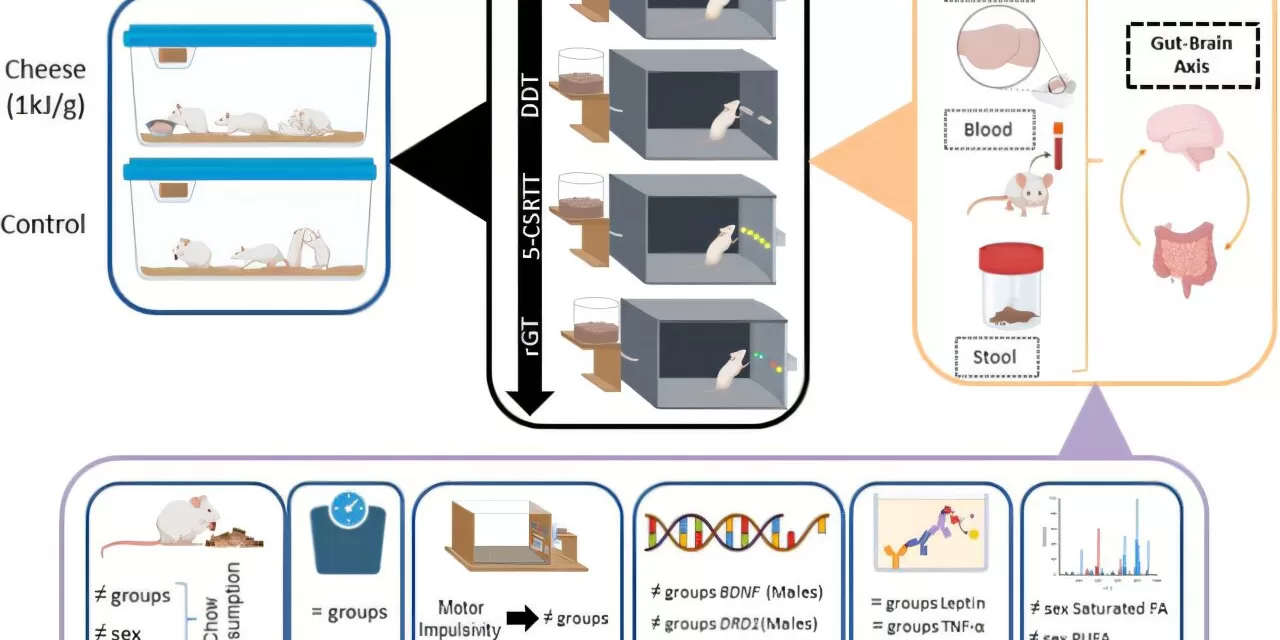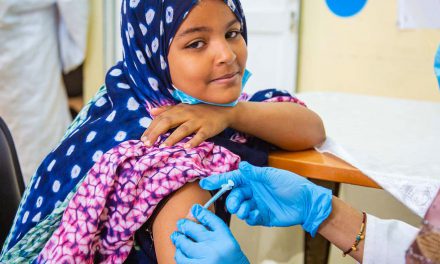A study published in ACS Chemical Neuroscience has revealed that adolescent rodents fed a high-fat diet displayed significantly higher impulsivity and altered decision-making behaviors as adults. The findings suggest that what adolescents eat could have lasting effects on their cognitive development, particularly in areas related to self-control and impulsive actions.
Previous research has shown that for adults, diets high in saturated fats and added sugars are linked to impulsivity and poor decision-making. However, less was known about the impact of diet during adolescence—a critical period for brain development. To address this gap, Santiago Mora and colleagues conducted experiments on rats to explore how a high-fat diet during adolescence might shape behavior later in life.
The researchers fed two groups of rats a different diet from a young age: one group, dubbed the “cheesecake rats,” received a high-fat diet made of cheesecake, while the other group, the “chow rats,” was fed a nutritionally balanced diet. After reaching adulthood, the rats were tested on various tasks designed to assess attention, inhibitory control, and decision-making, including a gambling scenario that mimicked risk-taking behavior.
The results were striking. The cheesecake rats showed a marked increase in impulsivity, as they responded prematurely to visual cues in motor inhibition tasks. These impulsive actions were linked to a reduced ability to control urges and make decisions in line with long-term goals. On the other hand, when faced with gambling tasks, the cheesecake rats consistently chose smaller but safer rewards, displaying a more conservative approach to risk than their chow-fed counterparts.
Further analysis of the rats’ brains revealed significant genetic and metabolic differences between the two groups. The cheesecake rats exhibited altered function in the mesolimbic pathway—the brain’s reward system—and had modified levels of fatty acids in their guts. These changes were associated with the impulsive behaviors observed in the adult rats, suggesting that a high-fat diet during adolescence may disrupt both brain function and gut metabolism, influencing behavior and personality.
The study underscores the importance of diet as a factor in adolescent brain development, alongside other known influences such as sleep, exercise, and substance use. Mora and his team caution that while their findings are promising, more research is needed to fully understand the mechanisms underlying the observed effects of a high-fat diet on brain development and impulsivity.
In conclusion, this study provides valuable insight into the potential long-term consequences of adolescent eating habits. The researchers hope their work will pave the way for further studies that could inform dietary recommendations and interventions aimed at improving mental health and decision-making in humans.
For more information, see the full study: From Nutritional Patterns to Behavior: High-Fat Diet Influences on Inhibitory Control, Brain Gene Expression, and Metabolomics in Rats by Diego Ruiz-Sobremazas et al., published in ACS Chemical Neuroscience. DOI: 10.1021/acschemneuro.4c00297












